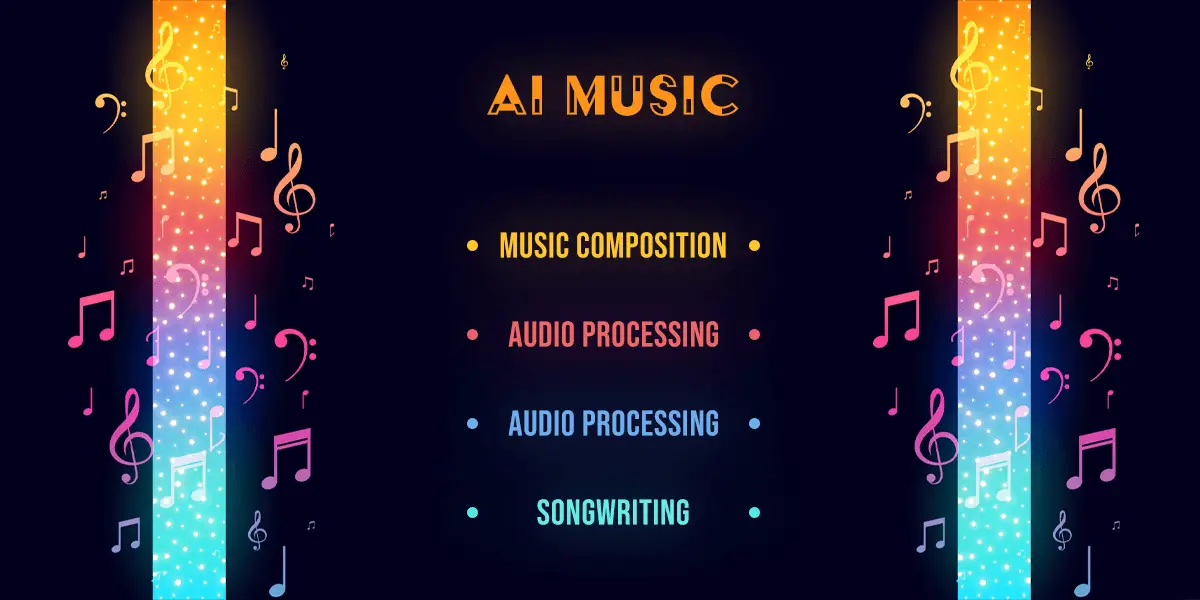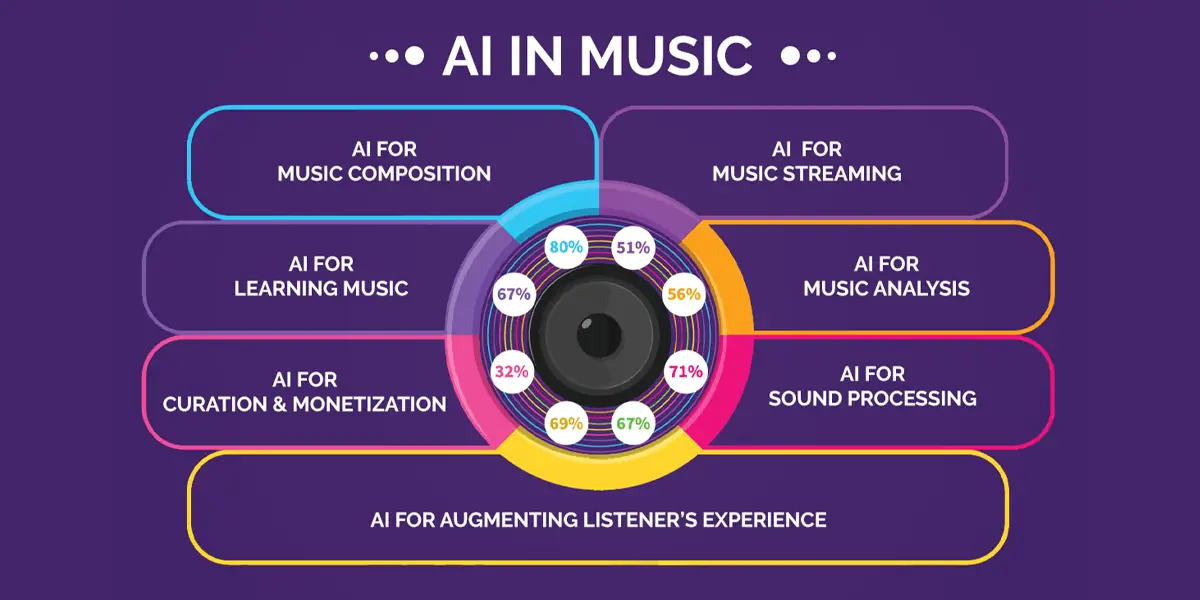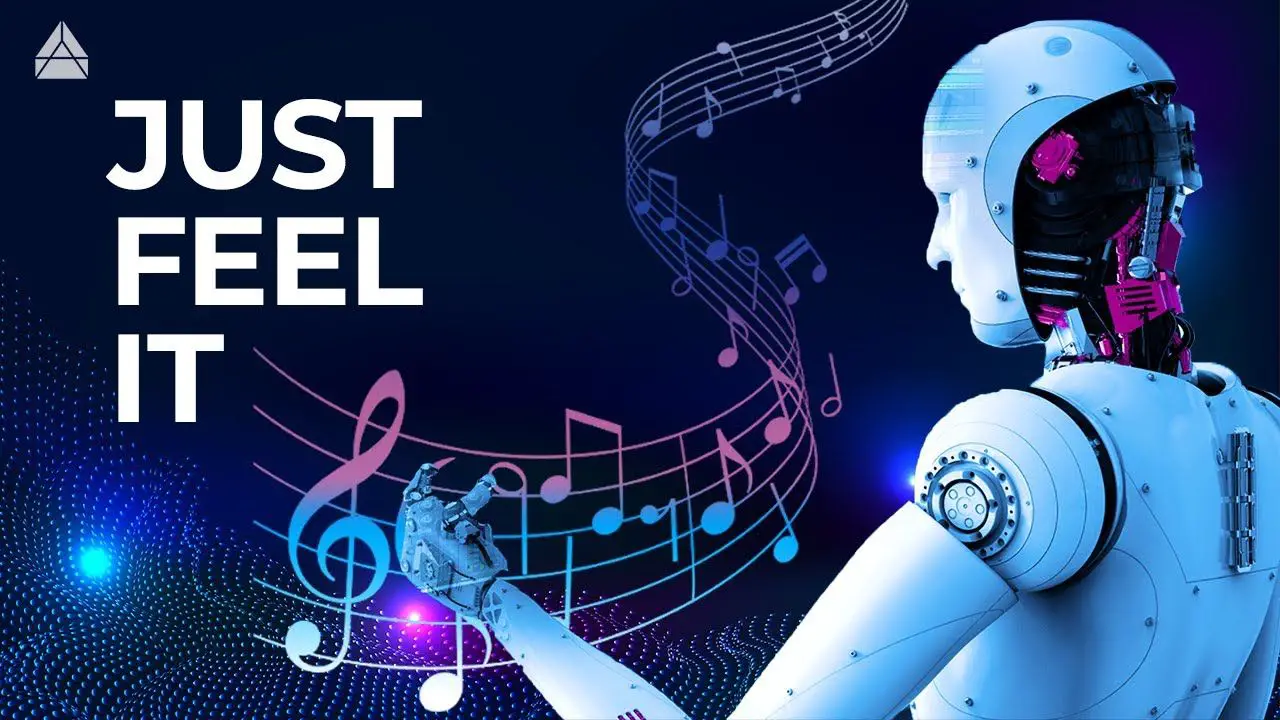Artificial intelligence (AI) is rapidly changing the world as we know it, and the music industry is no exception. AI-powered tools are already being used to create new music, compose soundscapes, and even generate lyrics. As AI continues to develop, it is likely to have an even greater impact on the future of music composition.

One of the most exciting ways that AI is being used in music composition is through the creation of new sounds and instruments. AI algorithms can be trained on large datasets of existing music, and then used to generate new sounds that are both unique and interesting. These AI-generated sounds can be used to create new songs, or to add texture and atmosphere to existing tracks.

Another way that AI is being used in music composition is through the automation of tasks. AI algorithms can be used to generate chord progressions, melodies, and even entire songs. This can save musicians a lot of time and effort, and it can also help them to come up with new and innovative ideas.

Of course, AI is not without its challenges. One of the biggest challenges is that AI-generated music can often sound repetitive or formulaic. This is because AI algorithms are trained on data that is already available, and they may not be able to come up with truly original ideas. However, as AI algorithms continue to develop, they are likely to become more sophisticated and creative.
Another challenge is that AI-generated music can be difficult for humans to relate to. This is because AI algorithms do not have the same emotional understanding as humans, and they may not be able to create music that is truly moving or inspiring. However, as AI algorithms continue to develop, they are likely to become more empathetic and emotionally intelligent.
Overall, AI is having a major impact on the future of music composition. AI-powered tools are already being used to create new music, compose soundscapes, and even generate lyrics. As AI continues to develop, it is likely to have an even greater impact on the music industry.
Here are some specific examples of how AI is being used in music composition today:
- IBM’s Watson Beat is an AI-powered tool that can generate new beats and melodies. Watson Beat has been used by musicians such as will.i.am and Grimes to create new songs.
- Google’s Magenta is an open-source AI research project that is developing new ways to create and perform music. Magenta has been used to create a variety of musical projects, including a neural network that can generate new melodies.
- Spotify’s Discover Weekly playlist is generated by an AI algorithm that learns from your listening habits. Discover Weekly has helped users to discover new music that they might not otherwise have found.
These are just a few examples of how AI is being used in music composition today. As AI continues to develop, we can expect to see even more innovative and creative ways to use AI in music.# Ai And The Future Of Music Composition
Executive Summary
Artificial intelligence (AI) has the potential to revolutionize music composition in many ways. AI-powered tools can help composers create new and innovative sounds, explore new musical styles, and even automate the composition process. As AI continues to develop, it is likely to play an increasingly important role in the future of music composition.
Introduction
Music has always been a form of expression that has the power to move and inspire people. In recent years, there has been a growing interest in the use of artificial intelligence (AI) in music composition. AI has the potential to help composers create new and innovative sounds, explore new musical styles, and even automate the composition process.
How AI is Used in Music Composition
There are a number of ways that AI can be used in music composition. Some of the most common uses include:
- Creating new sounds: AI can be used to create new and innovative sounds that would not be possible with traditional instruments or music software. This can be done by using AI to generate new waveforms, synthesize new sounds, or process existing sounds in new and creative ways.
- Exploring new musical styles: AI can help composers explore new musical styles by analyzing large datasets of music and identifying patterns and trends. This information can be used to create new compositions that are inspired by existing music, but that also have a unique and original sound.
- Automating the composition process: AI can be used to automate the composition process, freeing up composers to focus on other aspects of their work. This can be done by using AI to generate melodies, harmonies, and rhythms, or even to create entire compositions from scratch.
The Benefits of Using AI in Music Composition
There are a number of benefits to using AI in music composition. Some of the most significant benefits include:
- Increased creativity: AI can help composers to be more creative by providing them with new ideas and inspiration. This can lead to the creation of new and innovative music that would not be possible without AI.
- Improved efficiency: AI can help composers to be more efficient by automating the composition process. This can free up composers to focus on other aspects of their work, such as performing or recording.
- Reduced costs: AI can help composers to reduce costs by automating the composition process. This can make it possible for composers to create high-quality music without having to spend a lot of money.
The Challenges of Using AI in Music Composition
While AI has the potential to revolutionize music composition, there are also a number of challenges that need to be addressed. Some of the most significant challenges include:
- The lack of human input: AI systems are often not able to understand the creative process of music composition. This can lead to music that is repetitive or uninspired.
- The need for large datasets: AI systems need to be trained on large datasets of music in order to learn how to compose music. This can be time-consuming and expensive.
- The risk of bias: AI systems can be biased against certain types of music or composers. This can lead to music that is not representative of the diversity of musical expression.
The Future of AI in Music Composition
Despite the challenges, AI is likely to play an increasingly important role in the future of music composition. As AI systems continue to develop and learn, they will be able to create music that is more creative, more efficient, and more diverse. This will open up new possibilities for composers and musicians, and it will help to shape the future of music.
Keyword Phrase Tags
- Artificial intelligence (AI)
- Music composition
- Machine learning
- Deep learning
- Generative music

This is very interesting! I would absolutely use AI to begin composing music, but ultimately, I think a human touch is still required to make it truly special.
I’m not convinced that AI will ever be able to truly replace human composers. Music is such a personal and expressive art form, and I don’t think AI can fully capture that.
It is important to remember that AI is only a tool, and like any tool, it can be used for good or for evil. It is up to us to ensure that AI is used for the betterment of humanity, and not to its detriment.
I believe that AI has the potential to revolutionize the way we create music. However, I also believe that it is important to preserve the role of human composers in the process.
So, AI is going to replace all human composers? That’s like saying a robot is going to replace all human doctors. It’s just not going to happen.
Oh, great. Just what we need. More AI-generated music that all sounds the same.
I can’t wait to hear the AI-generated opera about a talking cat who falls in love with a robot.
Iam a professional musician and for me is very good the IA
This is bad this is vey bad
very interesting, I did not know that artificial intelligence could compose music.
I think that artificial intelligence will never be able to replace human composers.
So, artificial intelligence is going to replace all human composers?
Oh, great. Just what we need.
I can’t wait to hear the AI-generated opera about a talking cat who falls in love with a robot.